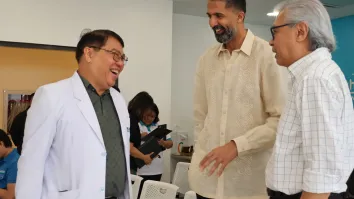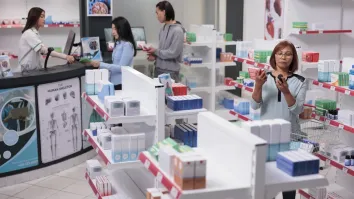How unmet healthcare needs in Asia Pacific must be addressed
Medical technology experts gather for Asia Pacific MedTech Forum 2017.
Asia’s leading healthcare representatives gathered today in Singapore for the start of the third annual Asia Pacific MedTech Forum, hosted by the Asia Pacific medical technology Association (APACMed).
The Forum brings together regional and global senior medical device executives, regulators, policy makers, healthcare providers, payers and investors to explore the transformation of the healthcare ecosystem through innovation.
Key to addressing unmet needs in Asia Pacific is a collaborative, value-based approach to deliver high quality care for all. Vladimir Makatsaria, Company Group Chairman at Johnson & Johnson and Chairman of APACMed, opened the Forum and emphasised the power of true innovation and development in creating possibilities in healthcare: “Innovation is equally about creating new technologies to improve the quality of healthcare for patients, as well as devising innovative ways to improve access to healthcare for those who need it most”.
Thought leaders tackled the real-life impact of digitisation on improving access, including technological advancements such as mixed reality computing, and the ramifications for patients.
Experts also addressed the constraints of developing market-appropriate products and services, and how through ingenuity the sector can turn adversity into opportunity. A debate on Artificial Intelligence (AI) in healthcare brought together experts from both AI development and clinical practice to explore whether AI could one day provide better patient care than a doctor.
Asia Pacific is home to more than half of the world’s population, yet the region remains enormously diverse in terms of healthcare access, regulations and practices. It is therefore critical for stakeholders to come together to share best practice and co-develop innovations that meet the needs of patients from both developed and emerging markets.
Summing up the day’s discussions, Fredrik Nyberg, Chief Executive Officer, APACMed said: “The MedTech industry is undergoing unprecedented transformation. Traditional medical device companies are overhauling their longstanding business models and developing creative approaches to delivering care. We are encouraged to hear new ideas and thinking today which will lead to radical, but strategic change in our healthcare systems. The MedTech Forum is a unique opportunity to bring together all stakeholders and further drive access to quality healthcare, and, ultimately, the lives of patients across Asia Pacific.”
Tomorrow’s agenda opens with a case study on Japan delivered by Dr Yasuhiro Suzuki, the country’s Chief Medical and Global Health Officer and Vice-Minister for Health, Ministry of Health, Labour and Welfare (MHLW), Japan. He will discuss Japan's pro-innovation policies, and the future direction MHLW will take to successfully balance innovation and sustainability in healthcare.



















 Advertise
Advertise






